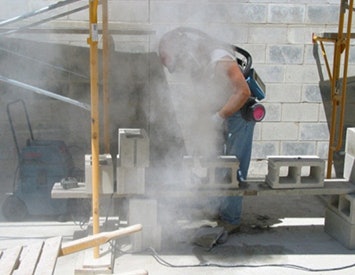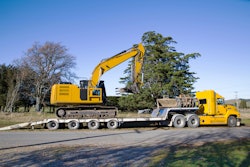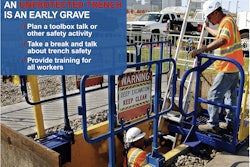 Photo: New Jersey Department of Health
Photo: New Jersey Department of HealthA Virginia contractor faces $304,130 in penalties for allegedly violating regulations governing crystalline silica dust and other safety violations, according to Virginia Occupational Safety and Health.
Lanford Brothers of Roanoke was issued five citations in August by VOSH for violations on February 20 and May 16. According to VOSH, the violations are as follows:
- Workers were not using wet methods to reduce silica dust while operating jackhammers to remove concrete from piers on the Exit 45 bridge on Interstate 81 at Marion on February 20. On May 16, workers were operating jackhammers without using respiratory protection. Proposed penalty: $96,000. Willful-serious violation.
- The company did not assess the exposure to each employee exposed to silica dust on February 20 and May 16. Proposed penalty: $96,000. Willful-serious violation.
- The employees had not been provided required medical evaluations. Proposed penalty: $96,000. Willful-serious violation.
- A temporary worker removed concrete from the deck of the bridge without being trained on silica hazards as required. Proposed penalty: $8,065. Serious violation.
- Workers and the superintendent were not wearing proper eye protection May 16 while operating jackhammers or observing the work. They were wearing sunglasses instead of approved safety eyewear while removing concrete from the bridge deck. Proposed Penalty: $8,065. Serious violation.
The company has faced violations in the past. It was fined $7,840 for violating scaffolding safety requirements on June 12, 2017, at the I-81 bridge at Marion.
The company is contesting the most recent violations, according to the website for the U.S. Occupational Safety and Health Administration. Attempts to reach the company for comment for this article were unsuccessful.
According to U.S. OSHA’s Table 1 compliance for silica dust suppression, the following measures are required when operating a jackhammer for more than four hours on a shift:
- Use a water delivery system that supplies a continuous stream or spray of water at the point of impact, or use a commercially available dust shroud and dust collection system.
- Workers must wear APF 10 respiratory protection.
For more on OSHA’s silica rules, click here.











